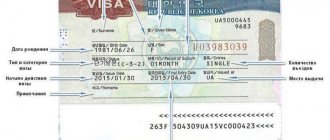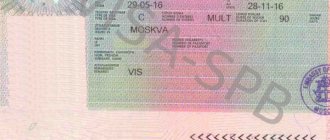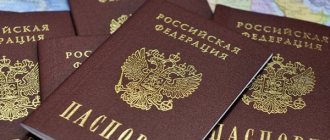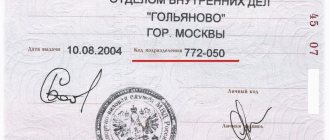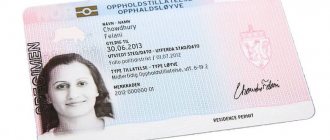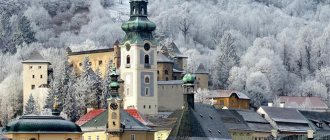Many Russian-speaking citizens from the CIS countries have recently been actively seeking to move to Russia and obtain permanent residence status. At the same time, many of them have little idea what permanent residence in Russia is, what the specifics of this status are, how to obtain it and how it can be useful. Often this abbreviation in the mass consciousness of people is endowed with some magical properties: you just have to get permanent residence and all problems will be solved instantly. It’s worth figuring out whether this is true and what migration service workers mean by “permanent residence”.
Permanent residence: what does it mean?
Most often people think about permanent residence when they talk about going abroad. At the same time, not even everyone knows how permanent residence stands for. This is an abbreviation for the concept of “permanent residence”. It does not have an unambiguous and clear legal definition.
Permanent residence means (essentially, it states a fact) both the status of a citizen of a given country and the status of a foreigner who has legitimately moved here, legalized his stay here and has no intention of leaving anywhere.
The interpretation of what it means - permanent residence, and how this status can be achieved are inextricably linked with the legislation of a particular state. According to Russian legislation, migrants are distinguished:
- temporarily staying in the Russian Federation (entered visa-free and live having acquired a working patent);
- temporary residents (residence is allowed for a period of three years);
- permanent residents (provided with a residence permit).
What does permanent residence mean?
A change of place of residence in the modern world will not surprise anyone, and most people have at least heard various concepts and terms related to migration. However, it is unlikely that those who live sedentary life have had to deal closely with such questions. Therefore, many people do not know what permanent residence means. And only for people who have decided to make dramatic changes in their lives, these cherished three letters are an unattainable dream or goal for the next few years.
So, what is permanent residence and what is the meaning behind this abbreviation?
Permanent residence stands for permanent residence. This concept means a certain status of a person who has legally resided in the country for a long period of time, but has not yet received citizenship.
It is a mistake to connect permanent residence and registration - these concepts have completely different legal meanings. Permanent residence status does not imply staying at the same address, in the same city during this entire time. Permanent residence does not in any way restrict a person’s freedom of movement, but only gives the right to stay on the territory of the state legally.
A document confirming this status is received by a citizen of a foreign state who has already passed a certain check and inspires confidence in the migration service authorities. Only a foreigner who has had a residence permit (RP) for several years can apply for permanent residence.
What does status give?
Each state establishes its own immigration procedures, so the rights and obligations of foreign citizens with permanent residence status may differ from country to country. But, as a rule, permanent residence practically equates a foreigner to citizens and gives him the same rights, with the exception of some preferences that are available only to passport holders.
These rights may include:
- high positions in the civil service;
- suffrage;
- right to stand for election;
- service in the armed forces.
Once it has been possible to obtain permanent residence, this status gives its owner the right to:
- reside on the territory of the state without time restrictions;
- travel outside the country an unlimited number of times;
- take advantage of the opportunity for visa-free travel between countries with which relevant agreements have been concluded;
- enjoy social and legal protection;
- claim social benefits, including the public sector: education and medical care;
- use the financial and economic system of the state and banking services, for example, obtain loans;
- purchase real estate;
- work;
- have your own business.
We must not forget about the responsibilities that permanent residence imposes. Practically equating a foreigner with citizens of the country, the status of permanent residence obliges him to comply with laws, pay taxes, and respect local customs and culture. In case of any violations, the holder of permanent residence will be held accountable before the law on an equal basis with citizens of this state.
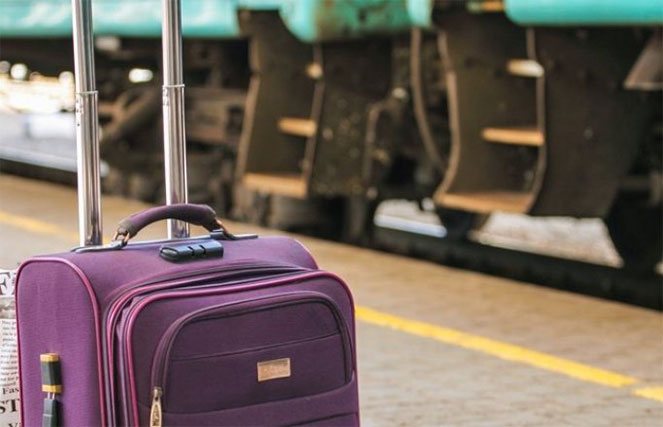
Depending on the legislation of a particular country, permanent residence permits can have different validity periods - from several years to lifelong status. After the required number of years, having passed the necessary exams on knowledge of the language and history of the country, you can exchange your document of permanent residence for a citizen’s passport.
However, this procedure is voluntary, and if desired, a person can continue to live unhindered with permanent residence status by renewing it in time with the relevant services.
What distinguishes permanent residence from temporary residence permit, residence permit and citizenship
If permanent residence of foreigners in Russia is a statement of the fact of residence within the country, then temporary residence permit, residence permit, citizenship are ways of legitimizing it. A temporary residence permit or TRP legalizes a three-year residence in Russia, ties it geographically to a specific constituent entity of the Russian Federation, gives the right to work without obtaining a patent and to apply for the next status - a residence permit (RP).
A stamp in the passport, permanent residence in Russia for five years (a residence permit is given for this period with the right to extension) allows you to apply for Russian citizenship, and while maintaining your citizenship, enjoy almost all the rights of Russian citizens.
The status of a citizen gives the right to participate in elections, work in the civil service, and it also imposes certain obligations to the new homeland.
Read in more detail about the differences in statuses associated with temporary residence permit, residence permit and citizenship.
Residence permit, permanent residence and citizenship in Europe
Nowadays, several European countries offer foreigners programs that provide residence permits to investors and simply wealthy, financially independent people.
Great Britain
Since time immemorial, the United Kingdom has welcomed enterprising people from all over the globe, capable of making the economy of this island nation even stronger with their remarkable intellect, hard work and generous investments. To obtain permanent residence in the UK, depending on your ultimate goal, you can apply for the following long-term visas:
- Tier 1 Investor;
- Sole representative;
- Innovator;
- Startup;
- Tier 2 work visa.
All of the listed immigration statuses, with the exception of the Tier 1 Investor visa, impose a number of requirements on applicants and significantly limit their functionality. All 5 types of visas allow holders to eventually apply for permanent residence and citizenship. A special feature of the Startup visa is that it cannot be extended 2 years after receipt, so in order to obtain permanent residence and British citizenship you will have to subsequently switch to another visa.
As you may have guessed, the British immigration service offers the most interesting conditions to investors. To obtain this status, you need to invest at least £2,000,000 in the English economy, then after 5 years you will have the opportunity to become a permanent English resident, and after another 1 year to become a citizen of the Kingdom.
Latvia
This Baltic country has had a Latvia Golden Visa program since 2010, which allows you to obtain a residence permit in exchange for investment. The good news is that here not only the purchase of shares in Latvian companies is considered an investment, but also the purchase of a comfortable apartment in the Latvian capital or a cozy suburban cottage. The main thing is that the purchase price exceeds €250,000: this will allow you and your family to live in a quiet and friendly European country for 5 years without restrictions from the immigration service. And if you live there for more than 4 years and learn the Latvian language at a level acceptable for passing the exam, you can apply for permanent residence. The process of obtaining Latvian citizenship and passport usually takes 10 years.
Malta
This small island state in southern Europe is often chosen by those who want to optimize their taxes. The fact is that Malta has one of the smallest taxes on corporate income - 15%, and there are no property taxes at all.
The Maltese authorities are interested in the influx of capital, so they have a unique program that allows you to quickly obtain a residence permit, become a permanent resident or obtain an EU passport.
The cost of obtaining a residence permit, if you decide to move with your whole family, will be €30,000, and another €9,000 will be spent annually on re-registration of immigration status. The country's immigration authorities do not require temporary residents to remain permanently in Malta, but it is important to note that the period of stay in any other country in the world will be limited to 183 days.
A permanent residence permit under the investment attraction program can be issued if:
- You have purchased shares in Maltese companies or other investment documents in the amount of €250,000;
- You have purchased a property in Malta worth at least €270,000 or rent the property for 5 years, paying €10,000 per year.
According to the terms, both shares and purchased real estate must be held for at least 5 years.
The passport of the Republic of Malta will cost the most for an investor, because it involves a non-refundable contribution to the national fund in the amount of €650,000, the purchase of Maltese shares in the amount of €150,000, as well as the purchase of real estate worth at least €350,000 or expensive rental property for €16,000 in year for 5 years. Both shares and real estate must also be held for at least 5 years. It is not permitted to rent out or re-let a purchased or rented property during the specified period.
The total cost of obtaining citizenship for just one person will be €1,150,000. If you intend to make your spouse and minor children citizens of the European Union, then for each you will need to make a non-refundable contribution of €25,000. Registration of a passport for an adult relative will cost the investor to an additional €50,000.
Montenegro
Since the beginning of 2021, this country has had a citizenship by investment program. However, the number of applicants is limited to 2000 and the program itself ends in 2021. You need to understand that the country is not yet a member of the European Union and should join it in a few years, but today a Montenegro passport allows visa-free entry into 117 countries.
This is one of the most interesting proposals for the following reasons:
- the period from the moment of submitting the application to receiving a European passport is only 6 months;
- Dual citizenship is allowed in Montenegro;
- the applicant does not need to know the language and be an experienced businessman;
- Montenegrin passport is inherited;
- there is both an affordable and growing real estate market;
- the country itself is incredibly beautiful, with a thriving tourism industry.
So how much will it cost an investor to obtain Montenegrin citizenship? First, let's look at capital investment. There are three common investment options:
- €450,000 for a development project in a well-developed part of Montenegro - for example, in coastal areas;
- €250,000 investment if the development project is located in underdeveloped areas of central and northern Montenegro;
- Direct investment in tourism or hotel business with the creation of additional jobs. Investment size: €5 million or €15 million.
Non-refundable payments when applying for Montenegrin citizenship by an investor:
- €100,000 contribution to the national fund of Montenegro;
- €15,000 state fee when submitting an application, €10,000 fee for a family of up to 4 people, plus another €50,000 for each additional dependent;
- fees for checking the applicant's credibility and passport fees.
What gives a foreign citizen permanent residence status in the Russian Federation?
A foreigner who obtains a residence permit stamp in Russia automatically acquires the status of permanent residence.
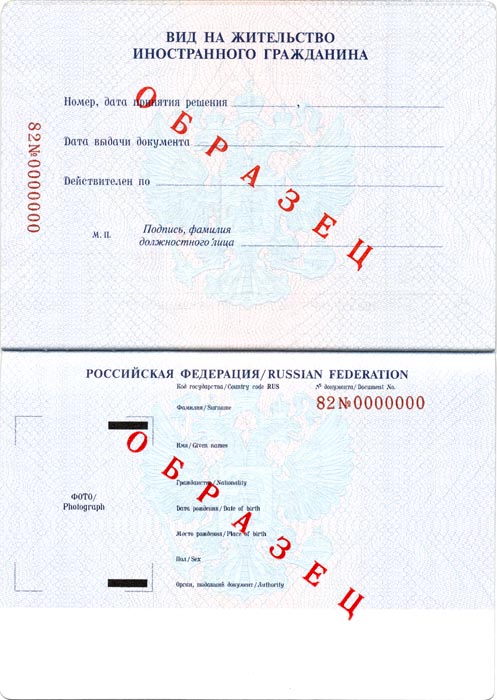
This status, first of all, allows you to live unhindered in any Russian region and enjoy almost all the rights that Russians enjoy. At the same time, it obliges us to comply with the laws of this country, respect the traditions and way of life of the indigenous people of Russia. A foreigner who holds a residence permit has the right to decide for himself whether to renew his residence permit or apply for Russian citizenship.
Main advantages and disadvantages
Permanent residence of foreign citizens in the Russian Federation with a residence permit has both pros and cons. Main advantages:
- there is no need to extend visas, obtain permits or issue work patents;
- the right to purchase real estate in Russia, reside, do business or work in any region of the Russian Federation;
- the right to social services (free education and medicine, pension services, etc.);
- the right to participate in municipal elections, referendums;
- the right to retain previous citizenship;
- the possibility of unhindered entry and exit from the Russian Federation;
- the right to extend a residence permit or to acquire Russian citizenship.
Before leaving for permanent residence in Russia, you should familiarize yourself with the negative aspects:
- the need to start life over with a “new leaf” (this is especially difficult for older people);
- when participating in the State Program for the Resettlement of Compatriots - the need to live in those regions of the Federation that participate in the program and where there are quotas (often these are regions with unusual or harsh climatic conditions);
- possible problems with employment and housing;
- inability to make a career in the civil service, the Ministry of Internal Affairs, the FSB, etc.;
- the need to annually provide data on your place of residence to the Ministry of Internal Affairs;
- inability to participate in national elections (to elect and be elected to elective positions).
What do you need to move to the Russian Federation for permanent residence?
Where to start moving? Most likely from choosing a region and collecting information about the legalization process. Do you want to move right away or are you thinking about looking around first? In the first case, you can collect documents for leaving for permanent residence in the country of origin, in the second - do this gradually, already in Russia. Certain categories of citizens, for example those who qualify for the resettlement program for compatriots, can even obtain a Russian passport without entering the Russian Federation! In general, we can name 6 main ways to move to Russia for permanent residence:
- Take part in the State Resettlement Program (documents can be issued both at home and while in the Russian Federation. Suitable for former citizens of the USSR living in the territory of the republics of the former Union, as well as for emigrants from the Russian state, the Russian Republic, the RSFSR, the USSR and the Russian Federation and members of their families). Does not work in all regions. Most often, it is older people who can initiate participation in the program and “transport” their children and grandchildren with them.
- Obtaining temporary asylum (for residents of Ukraine).
- Registration of refugee status (for those who are persecuted by the authorities of their own country).
- Acquiring citizenship or residence permit in a simplified manner (takes from one to three years and is suitable for close relatives of citizens of the Russian Federation and native speakers of the Russian language).
- Acquiring citizenship or residence permit in the general manner (takes 5 - 7 years. Suitable for any foreign citizens and stateless persons).
Please review the terms and requirements of each option carefully and evaluate how your situation fits one of them. Having decided on the legalization option, you can begin collecting documents. The packages of papers for the first five cases can be viewed by clicking on the item of interest. We will describe the main stages of moving to permanent residence in general below:
- You enter the Russian Federation (with or without a visa) and receive a migration card. With it, you will register for migration within 7 days.
- Foreigners of working age planning to work in the Russian Federation apply for a patent or work permit (not required for residents of the EAEU countries). You must apply for a patent within 30 days from the date of entry. You don’t need more to get a job (TIN and SNILS are issued by employers). A patent is issued for a maximum of one year with the possibility of extending it once for another 12 months. The work permit is valid from 1 to 3 years, depending on the category of the employee. If your ultimate goal is to move to permanent residence, then this is only the initial stage.
- Next, you need to obtain a temporary residence permit (with or without a quota). Once you receive it, you will no longer need a work permit or patent. The temporary residence permit is valid for 3 years with the need for annual confirmation.
- At least 8 months after the temporary residence permit is in hand, the foreigner has the right to apply for a residence permit. The application is processed within 4 months.
- Since 2021, the residence permit has become unlimited. This means that with this document you can live in the Russian Federation as long as you like, provided that you confirm it once a year. Some foreigners stop at this stage. But if your goal is a Russian passport, then if you have a residence permit, you have the right to apply for citizenship.
- After receiving a residence permit or citizenship, pensioners are removed from the pension register in the territory of their state and can process payments in the territory of the Federation. We'll talk about this a little later.
Remember that the migration legislation of the Russian Federation and local administrative acts regulating the state’s relations with foreigners are often subject to adjustments. Today you can bring one set of documents and it will be accepted, but in a week the requirements will change. Follow the news and be sure to check information on official sources.
And one more thing - it’s impossible to entrust the unpleasant procedure of waiting in line and filling out papers to anyone. Even for a fee. The personal presence of the applicant is required everywhere, unless he is a minor or incompetent.
Permanent residence for a foreigner in the Russian Federation: who can apply
The following categories of foreigners can apply for permanent residence in Russia:
- labor immigrants and other categories of foreigners who have lived legally (with a temporary residence permit) in Russia for at least a year. These categories of citizens follow the standard path;
- participants of the State Program “Compatriot”;
- holders of refugee status;
- family members and relatives of foreigners with a residence permit;
- highly qualified specialists and members of their families;
- those who renounced Russian citizenship. Registration of permanent residence in Russia for Russian citizens who previously had this status occurs in a simplified or general manner;
- persons who entered into marriage with a citizen of the Russian Federation and lived there for at least three years;
- foreigners who graduated from educational institutions in the Russian Federation;
- citizens recognized as native speakers of the Russian language, etc.
What is permanent residence and how does it differ from residence permit?
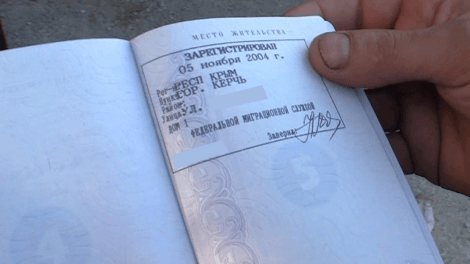
The term permanent residence means that a foreign citizen has a permanent place of residence in a certain country. In Russia, this indicates that the foreigner has obtained the status of a residence permit. Its presence allows a citizen of another state to study, work, and do business in the Russian Federation. But there are certain features that you need to know.
First of all, permanent residence is an abbreviation that stands for “Permanent Place of Residence.” However, such a term does not exist in the legislation. Typically, such a term indicates that a person has a status that allows him to permanently reside in the territory of a foreign state. Therefore, when they say “go to live for permanent residence,” they mean a person’s desire to obtain permits that allow him to legally reside in the country and subsequently obtain citizenship. According to Russian laws, migrants coming for permanent residence gradually receive this status:
- temporarily staying persons who have only temporary registration (also known as migration registration);
- temporary residents who have a temporary residence permit;
- permanent residents who have received the status of a residence permit (aka residence permit).
How is permanent residence different from residence permit?
When considering the differences between going for permanent residence and obtaining a residence permit, you should pay attention to the fact that a residence permit is a document that allows a foreigner to officially reside in the country. But permanent residence only says that a person does not permanently live in his native state, and therefore does not indicate any legal status or documents. Moreover, to obtain a residence permit in Russia, a foreigner must first obtain a temporary residence permit and only after a year of living under it, he will be able to become the owner of a residence permit. The status itself makes it possible for a foreign citizen not only to live in the Russian Federation, but also, after a period established by law (depending on the basis for obtaining a temporary residence permit), to obtain citizenship.
Important! A residence permit holder has almost the same rights as a Russian citizen, with a few exceptions.
After receiving permanent residence (in fact, residence permit), its main advantage for a foreigner is the possibility of legal employment in any subject of the Russian Federation. For example, a temporary residence permit allows you to work only in the region where it was issued. Additionally, it should be noted that you can stay abroad for any amount of time. The residence permit can be extended after 5 years of residence under it, or the foreigner submits an application for Russian citizenship. In addition, this status gives a person the following opportunities:
- receive social benefits, for example, to support a child;
- apply for a compulsory medical insurance policy;
- send invitations to other foreigners in the Russian Federation.
But there are also a number of restrictions that migrants must take into account. So, the owner of a residence permit:
- does not have the right to vote in elections and cannot run for office;
- cannot enter state, municipal, or military service;
- cannot be the captain of a civil aircraft and get a job as a crew member of ships flying the Russian flag.
Important! Due to the fact that a foreign national, having a residence permit, is not a citizen of Russia, he cannot be drafted into the army. At the same time, he himself has the right to enroll in a contract as a non-commissioned officer.
Any person from any state has the right to move for permanent residence to Russia. However, in order to be able to permanently reside in the country, you need to go through a number of procedures. So, the procedure is approximately the same for everyone (it differs for some categories, for example, participants in the “Compatriots” state program) and looks like this:
- First, you need to cross the Russian border through a border checkpoint and receive a migration card.
- Next, the registration of temporary residence permit status takes place. It requires you to live for 1 year without leaving the country during this time for a period longer than 6 months.
- Get a residence permit. You can begin the procedure for preparing this document after six months of residence under a temporary residence permit, which is due to the fact that the processing time for the application is 6 months.
Worth knowing! Participants in the “Compatriots” state program have the right to skip the stage of obtaining a residence permit and, after obtaining a temporary residence permit, immediately apply for citizenship.
As a result, when a foreign citizen has a residence permit, he is actually considered to have moved to the country for permanent residence. After 5 years of residence under this document, he has the right to apply for citizenship and, accordingly, a Russian passport. To obtain a residence permit, a foreigner must provide the following documents to the Department of Internal Affairs of the Ministry of Internal Affairs:
| Method of obtaining | Required documents |
| Standard procedure |
|
| Highly qualified specialists |
|
If you have children and marriage, you will additionally need to provide relevant evidence.
Important! All documents filled out in a language other than Russian must be translated and the translation notarized.

There are different ways to obtain permanent residence. For example, in addition to the classical procedure, this can be done through marriage with a citizen, investing in the country’s economy or purchasing real estate. So:
- In Latvia, it is enough to purchase a house or apartment, the cost of which exceeds 250 thousand euros. After this, the foreigner is issued a residence permit within 1 month.
- More favorable conditions are in Spain, where you need to buy housing for about 160 thousand euros. The disadvantage of this country is that after receiving a residence permit, a foreigner is immediately considered a tax resident, so he will have to pay taxes in Spain even on property that he has in other countries.
- Portugal. In order to obtain a residence permit, you need to invest in real estate in the amount of 0.5 million euros or open a company that will provide 30 citizens of this state with work.
- In order to obtain a residence permit in Greece, you will need to invest 250 thousand euros in the purchase of real estate. Additionally, you must have a bank account with more than 25 thousand euros, and your income must exceed 2 thousand euros monthly.
- Canada or Australia. It is easiest for highly qualified specialists to obtain a residence permit in these states. This is due to the fact that their migration policy is aimed specifically at attracting such foreigners. In addition, this status is granted not only to the applicant, but also to all his family members.
Registration of permanent residence: what documents will be needed
The documents required for permanent residence in the Russian Federation may differ for different applicants for this status. For those foreign citizens who follow the standard path, you will need:
- application (2 copies);
- civil / foreign passport (required for employment);
- 4 photos (35x45 mm);
- current temporary residence permit;
- confirmation of solvency and availability of funds to ensure living with family;
- documents for children (birth certificates of children under 18 years of age (from 14 years of age - and passports), notarized consent of children from 14 to 18 years of age to reside in the Russian Federation);
- medical certificate of absence of HIV infection and certificate of absence of syphilis, tuberculosis and other infectious diseases;
- certificate of knowledge of the Russian language, history and fundamentals of legislation of the Russian Federation (Law No. 74-FZ of 01/01/2015). Men over 65 years of age, women over 60 years of age, or those who have a diploma of education received in Russian are exempt from such an exam;
- receipt for payment of state duty (RUB 3,500).

The list of documents for traveling for permanent residence in the Russian Federation for foreign citizens who have benefits or use a simplified scheme for obtaining permanent residence is somewhat different from the standard one. Those applying for refugee status or political asylum will need:
- passport;
- migration card;
- medical certificate;
- 4 photos (35x45 mm);
- documents for children (same as the standard set of documents, in addition - two photos of each child).
For participants of the State Program for the Resettlement of Compatriots:
- civil passport / international passport;
- application for participation in the program;
- two photos;
- departure slip;
- certificate of good conduct;
- medical certificate;
- confirmation of education, qualifications, etc.
For highly qualified specialists:
- application in the prescribed form;
- passport;
- 4 photos;
- labor contract;
- family documents (marriage certificates, birth certificates, etc.).
Entry for foreign citizens for permanent residence in the Russian Federation: what you need to consider
For foreign citizens who are planning to obtain permanent residence in Russia, it is important to do everything correctly from the very beginning. On the website of the Main Directorate for Migration Affairs of the Ministry of Internal Affairs, you can familiarize yourself with the current requirements.
In 2021, citizens of Belarus, Ukraine, Armenia, Kazakhstan and Kyrgyzstan can enter the territory of the Russian Federation using internal passports.
Citizens of other CIS countries can enter only with international passports. All documents must be valid for the entire intended period of stay in the Russian Federation.
When crossing the border, you must fill out the migration card in person and without errors (entry part “A” and exit part “B”). If the visit is made with the aim of finding a job, then “work” should be marked on the card; if visiting relatives, “private” should be marked.
Part "B" must be kept. This document allows you to stay in the Russian Federation for 90 days in six months (in total for the year - 180 days, but for this you need to leave the Russian Federation and re-enter). Staying for more than 90 days without a valid reason is punishable by a fine - a ban on entry into the Russian Federation for three years.
How to bring a personal car to Russia when moving for permanent residence
Importing a car to Russia when moving for permanent residence is quite troublesome and costly. It is possible to import a car without paying customs duties within 18 months after moving to Russia for permanent residence only if:
- the transported car was produced back in the USSR (provided that the immigrant owned it before 1991);
- transportation of a personal vehicle (one per family) by a participant in the State Program for the Resettlement of Compatriots, if ownership of the vehicle was registered a year or more before departure from the country of residence.
When exporting a car to cross the border, auto insurance (“Green Card”) must be issued.
How to remove personal belongings
For those foreign citizens who participate in the State Program for the Resettlement of Compatriots and travel for permanent residence to Russia in accordance with Decree of the Government of the Russian Federation No. 142 of March 3, 2007, there are benefits for the transportation of personal property without paying import duties and taxes.
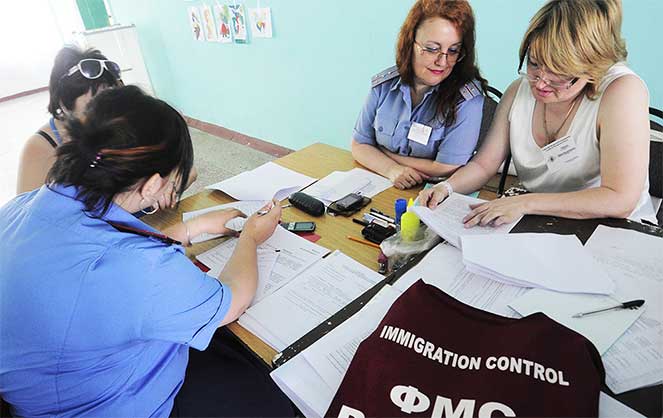
In addition, all the immigrant’s expenses for rail or sea transportation will be compensated. In other cases, immigrants are limited to a limit of 35 kg of things per person: if this is exceeded, a duty of 30% of the value of the imported cargo will be charged.
How to register at your place of residence
Registration at the place of residence is a very important point in the process of acquiring permanent residence status. In accordance with the Civil Code, a citizen’s place of residence is the place where he permanently resides. To register, the receiving party submits an application and copies of passports (of its own and a foreign citizen), a migration card, and a document on renting living space to the authorities of the Main Department of Internal Affairs of the Ministry of Internal Affairs. For a complete list of documents, see the website of the Main Directorate for Migration Affairs of the Ministry of Internal Affairs.
The application for a temporary residence permit must indicate the temporary registration address. Its place can be the foreigner’s own home, the home of relatives or friends, a rented apartment, a hostel, or, in extreme cases, a hotel (which is considered the citizen’s place of residence by law. This option will be the most expensive).
The period of such registration is equal to the validity period of the temporary residence permit. Registration will allow children to be enrolled in preschool and educational institutions and receive medical services.
For each region of the Russian Federation, certain quotas for temporary residence permits are allocated. If the quota has already been exhausted, housing may be offered in neighboring regions. For participants of the State Program, housing is provided in designated areas.
Find out more about registration at your place of residence.
From Turkmenistan
In the mid-90s, an agreement was signed between Russia and Turkmenistan to regulate the process of resettlement of compatriots. As part of this agreement, the State Program to Promote Voluntary Resettlement has been in effect since 2006. Under this program you can leave the country. Emigration is not an easy matter, but it is quite possible. To obtain the status of a migrant from Turkmenistan to Russia, you must submit an application for participation in the program. Then cross the Russian border and fill out a migration card. Register at your place of residence and submit an application and documents for a temporary residence permit. After this, you need to obtain official employment and you can apply for permanent residence.
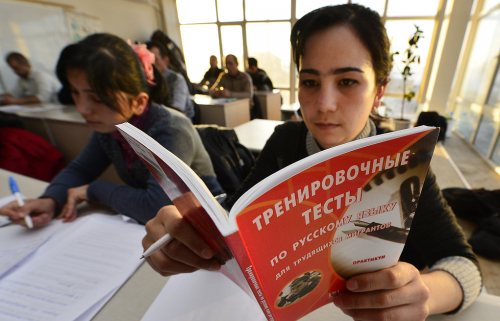
How to obtain permanent residence for citizens of Ukraine
Citizens of Ukraine who wish to obtain permanent residence status in Russia have the opportunity to travel to the Russian Federation under the State Program for the Resettlement of Compatriots or on their own. The algorithm of actions in each of these cases will be different.
Thus, participants in the State Program do not need to obtain a temporary residence permit; they immediately receive a residence permit. Those who travel independently need to take care of migration registration, obtaining a work permit and temporary residence permit, and registration at the place of residence. They will be able to apply for a residence permit only after a year has passed after the issuance of the temporary residence permit, but no later than 6 months before its completion.
For some categories of Ukrainian citizens, a simplified procedure is possible - for native Russian speakers who have Russian roots, for refugees. We should not forget that moving to Russia for permanent residence does not mean making a secret escape from Ukraine.
It is necessary to formalize a civilized separation, especially since legitimate emigration will allow you to maintain Ukrainian citizenship and insure yourself in case of a force majeure situation.
From Belarus to Russia
People living from Belarus in the Russian Federation are treated very loyally. Such foreigners cross the border with the Russian Federation using an internal passport and may not fill out a migration card. In addition, if a citizen of Belarus decides to change his previous place of residence, then, when immigrating to Russia, he can skip the stage of obtaining a temporary residence permit and proceed directly to the application for a residence permit. After a certain time, you can proceed to obtaining permanent residence or citizenship. Thus, emigration to the Russian Federation will be quite simple.
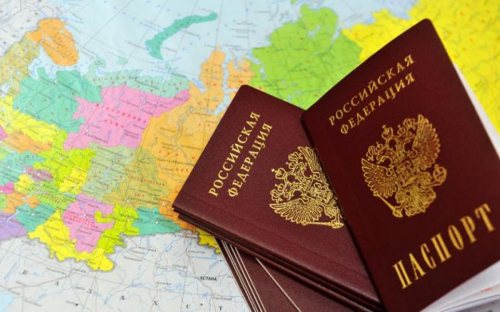
How to obtain permanent residence for citizens of Kazakhstan
Kazakh citizens enjoy the right to acquire permanent residence and subsequent citizenship of the Russian Federation in a simplified manner. For them, the time frame for verification and consideration of documents has been significantly reduced: if the general procedure prescribes the consideration of an application for citizenship within a year, then in this case the period is reduced to three months.
For Kazakhs, establishing the fact of permanent residence in the Russian Federation for five years is not required. If you have a residence permit, according to the quadripartite agreement (Russian Federation, Belarus, Kyrgyzstan and Kazakhstan), the period of residence does not play a role in obtaining Russian citizenship.
The state duty for Kazakhs is 2000 rubles. Russian-speaking citizens of Kazakhstan can become participants in the State Program for the Resettlement of Compatriots.
Where can foreign citizens go for permanent residence in Russia?
At the initial stages of obtaining permanent residence in the Russian Federation, the choice of place of residence for foreign citizens is often limited. Participants in the State Program (if they wish to receive benefits and enjoy benefits) initially have the right to settle only in those subjects of the Federation that take part in the program.
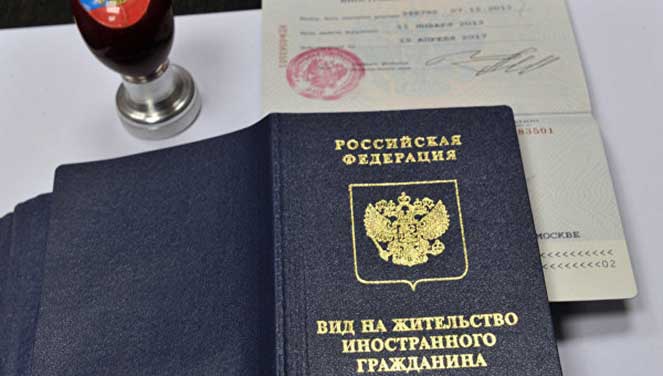
For foreigners who independently go through the process of obtaining a temporary residence permit to a residence permit, the choice of region for residence is limited by allocated quotas, and the quotas for the most favorable regions for residence are small.
Obtaining a residence permit in Russia allows a foreign citizen to choose the region of residence at his discretion.
This does not mean that a migrant will be welcome everywhere. Highly paid jobs are scarce and competition for them is very high; in big cities there are problems with housing, not to mention high prices.
The choice of place of residence will be influenced by factors such as the availability of job vacancies and housing, relatives or friends, educational opportunities for children, and climatic conditions.
Read more information about what influences the choice of place of residence and which regions have more favorable conditions for migrants in order to have a more complete idea of where to go to Russia for permanent residence.
Is it possible to go to Crimea for permanent residence?
Crimea (especially the South Coast) has always attracted the attention of those wishing to settle by the warm sea. Theoretically, any foreigner who has received a residence permit in the Russian Federation can go to Crimea for permanent residence. In practice, this is quite difficult to do. Moving to a permanent place of residence in Crimea is often problematic, even if you do not take into account the presence of quotas. In 2021, only 1,500 quotas were opened for the entire Crimea.
This is due, first of all, to the difficult political and legal situation on the peninsula. The “legal collapse”, in which thousands of citizens from the Russian Federation, Ukraine and CIS countries found themselves (closed state registers, fraud in the sale of real estate), led to the fact that persons with permanent residence in Crimea cannot obtain permission for a residence permit from the migration authorities Ukraine. There are no prospects for resolving this situation in the near future.
Considering the economic turmoil, international sanctions, water problems and other negative factors, there is no need to rush into a final move here for permanent residence.
Find out in more detail about all the possible options for moving to Crimea for permanent residence.
Permanent residence in the Russian Federation in 2021
Permanent residence in Russia for foreign citizens has both pros and cons. The main advantages are the following:
- There is no need to extend your visa, nor will you need to obtain a work permit or apply for a work patent;
- Possibility of purchasing real estate in the Russian Federation, living, working and doing business in any region of the Russian Federation;
- Receive social services, including free education, medical services, pension services;
- Take part in municipal elections and referendums;
- Maintain your previous citizenship;
- Travel in and out of the Russian Federation without restrictions;
- Renew your residence permit or acquire Russian citizenship.
To do this, you need to purchase real estate worth €500 thousand (or €350 thousand for a property built more than 30 years ago), invest €1 million in securities, or open your own business in the country and create 10 jobs. Residence permit (residence permit). To obtain a residence permit, you need to live in Russia for 3-5 years. This is a more serious document that provides a number of additional opportunities. With it, you can, for example, apply for medical care, move freely around the country, and work without special permission.
Obtaining Russian citizenship after a residence permit
The final act of the process of legalizing permanent residence status is the renunciation of previous citizenship and acquisition of Russian citizenship. In a standard situation (if you do not use benefits or a simplified procedure), the right to obtain Russian citizenship occurs after five years of residence with a residence permit.
In this case, the foreigner applies for Russian citizenship to the department of the Main Department of Migration Affairs of the Ministry of Internal Affairs at the place of residence (the place of residence of the citizen is the place where he was registered), submits the necessary documents (with confirmation of law-abidingness, payment of all required taxes, financial solvency) and pays the state fee .
Find out in more detail about the procedure for acquiring Russian citizenship by different categories of foreigners after receiving a residence permit.

